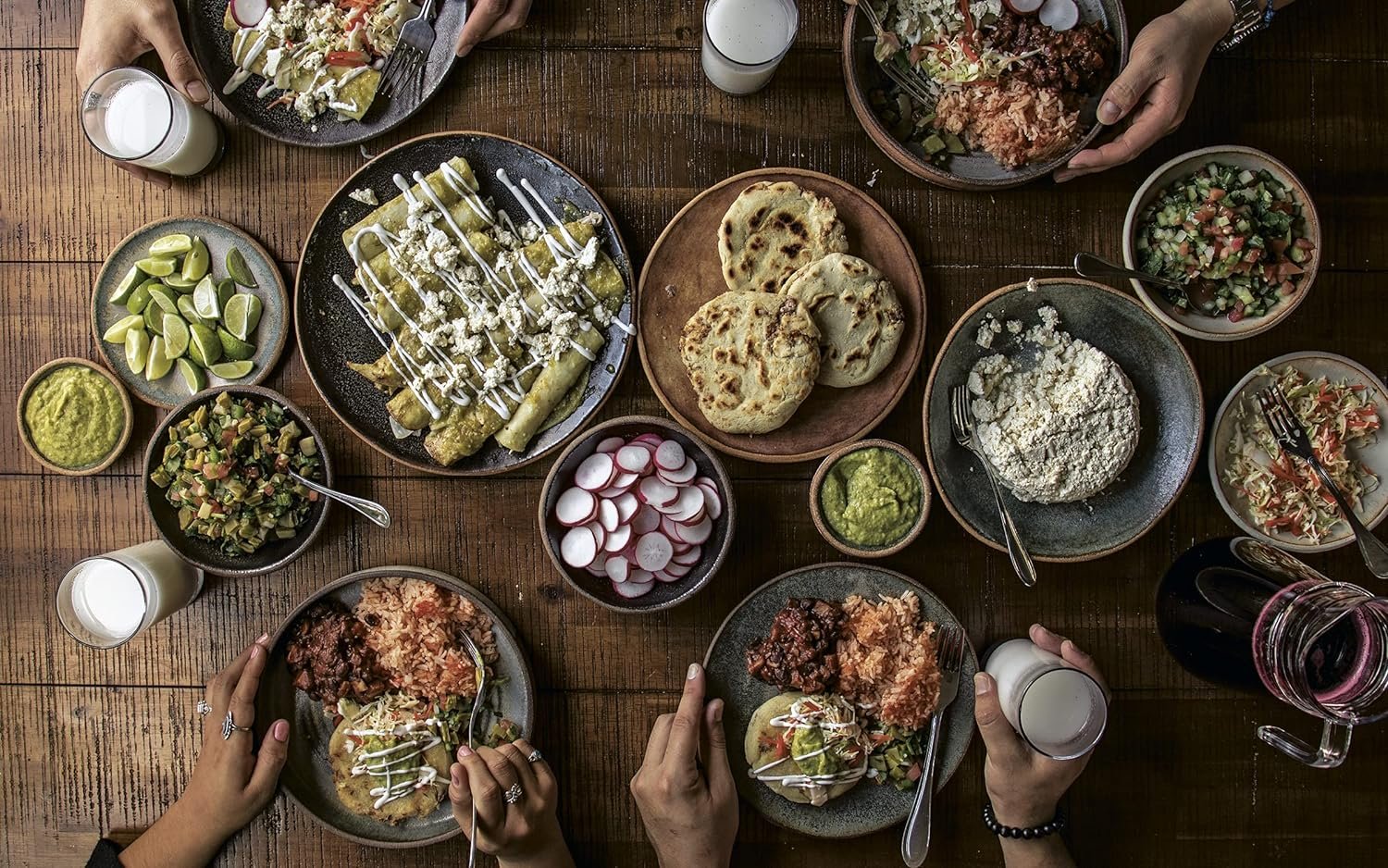Vegan Mexican cooking: a review of Castrejón’s Provecho
Originally published on Medium.
You’d be forgiven for being skeptical of a vegan Mexican cookbook. Mexican cuisine, historically and now, is heavy on animal protein. And no wonder: few things can match the magic that is carne asada tacos, chicken adobo, carnitas, queso fundido. Indeed, Mexican cuisine is so renowned for its meat dishes and cheeses, it seems primed for meat lovers only. But Castrejón might just prove us wrong.
Edgar Castrejón is unapologetically vegan, and his recent cookbook Provecho offers a variety of delicious Mexican and Latin American dishes, all of them plant-based. Impossible? Just you wait! Delicious? You betcha. Does it work all the time?… Sort of.
Castrejón is first and foremost a good educator, not only in vegan cooking but also in Mexican cuisine. The beginning ‘Tools and Pantry’ section provides guidance on the various chilis and mushrooms one can expect to find in this book, their difference in appearance and flavors, as well as their particular uses. The reader doesn’t have to be well-versed in vegan ingredients. In fact, most of this section seems written for the novice plant-based eater. But even for long-time vegans, there are some interesting ingredients to learn bout. Jackfruit in particular is used throughout this book, an ingredient I confess I hadn’t used until now, and what a treat! Also particularly helpful is the snippet about plantains and the various degrees of ripeness.
The recipes in this work are divided by sections, the first being ‘la mesa llena’, or ‘the full table’. These are your more traditional Mexican meals, revamped into a plant-based version. ‘La mesita’, the smaller table, shows off Castrejón’s more adventurous side with some creative non-traditional Mexican recipes. Then we have a series of breakfast offerings (some of which seemed more like full dinner entrees to me), ‘antojitos’ or little cravings, drinks, and desserts.
There are meals in this book that hit the spot immediately. Castrejón knows how to pull off a good sauce, and both his chilaquiles recipes (there’s a verde and a rojo version) are winners. There’s also the taquitos de camote (essentially sweet potato flautas) that are so flavorful, they instantly won the hearts of my family of carnivores. Also on our ‘favorites’ list are the shredded jackfruit tacos, the arepas de maiz con aguacate, and just about all of the drinks, alcoholic or non.
But there are some examples where these plant-based recipes feel a bit forced. The vegan chorizo ended up being a disappointment, not only texturally but in flavor. Ana’s tacos ricos felt like a missed opportunity for mushrooms (the call for vegan ground-meat substitute wasn’t particularly satisfying). And though some of his more traditional Mexican meals in his first hit the mark, some of them left me longing for the meat-version.
Where Castrejón really shines is in creating vegan recipes that stand out on their own, not as plant-based replacements for traditional meat entrees. The ‘Coliflor asada’ (roasted cauliflower) is a delicious option for anyone looking to impress with a vegan/vegetarian main course, and it’s not attempting to replace any meat. The ‘Jackfruit Tinga Tostadas’ makes jackfruit the star of the show, not as a replacement for shredded chicken or pork.
But despite some of these misgivings, this book came at a great time for vegan eating. Plant-based dieting is highly in vogue. Not only this, our conceptions about vegan diets are changing rapidly. Gone are the days when all vegans ate were tofu and salads. Authors like Castrejón are quickly proving that vegan eating can be just as flavorful, exciting, and creative, if not more so. More challenging perhaps is adapting beloved meat entrees into an impactful and flavorful plant-based alternative. It’s no small feat.
But perhaps also not always necessary. My principal love of Mexican cuisine is based on its miraculous marriage of spices and chilis, the sheer genius that is mole sauce. This book, for all its splendor, feels like the tip of the iceberg when it comes to what a plant-based Mexican cuisine will look like: some plant-based renditions of old meat favorites, yes; but hopefully also some new creations to add to the already rich cannon of Mexican delicacies.
Even if not all recipes met the mark of stardom, Castrejón’s work truly is a masterpiece, one that vegans, vegetarians, and those curious about plant-based diets will enjoy. After all, ¡provecho!, a common Spanish phrase used before sitting down to eat, means ‘Enjoy!’ (much like ‘bon appetit’ in French). I can say that most everyone, vegan or otherwise, will do so.

